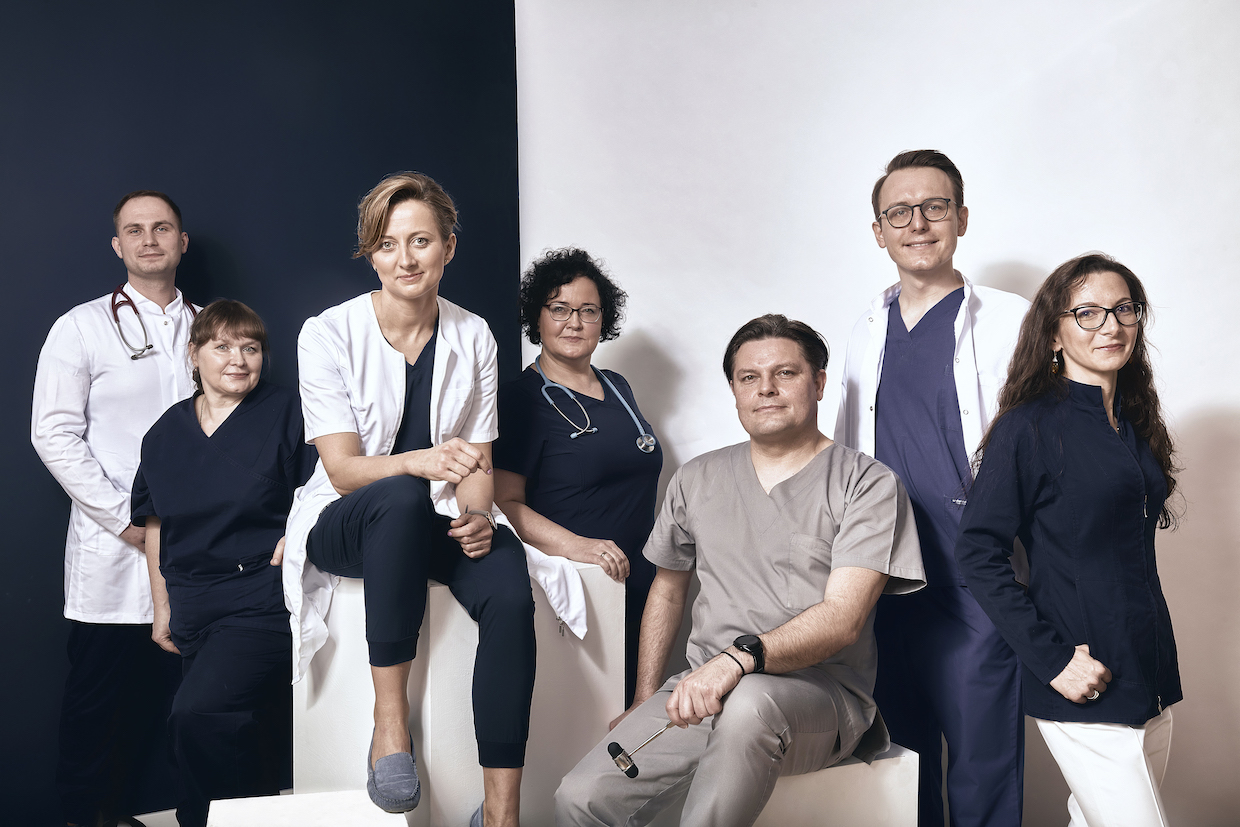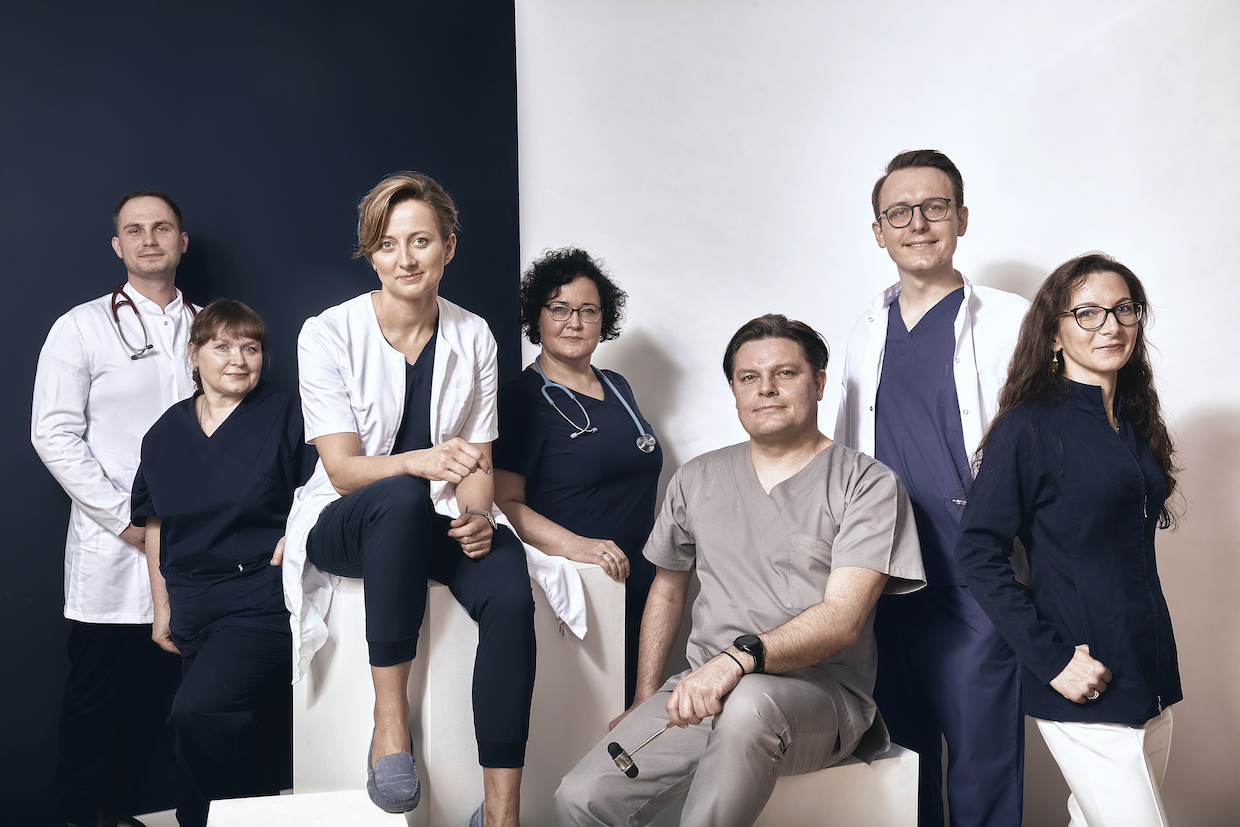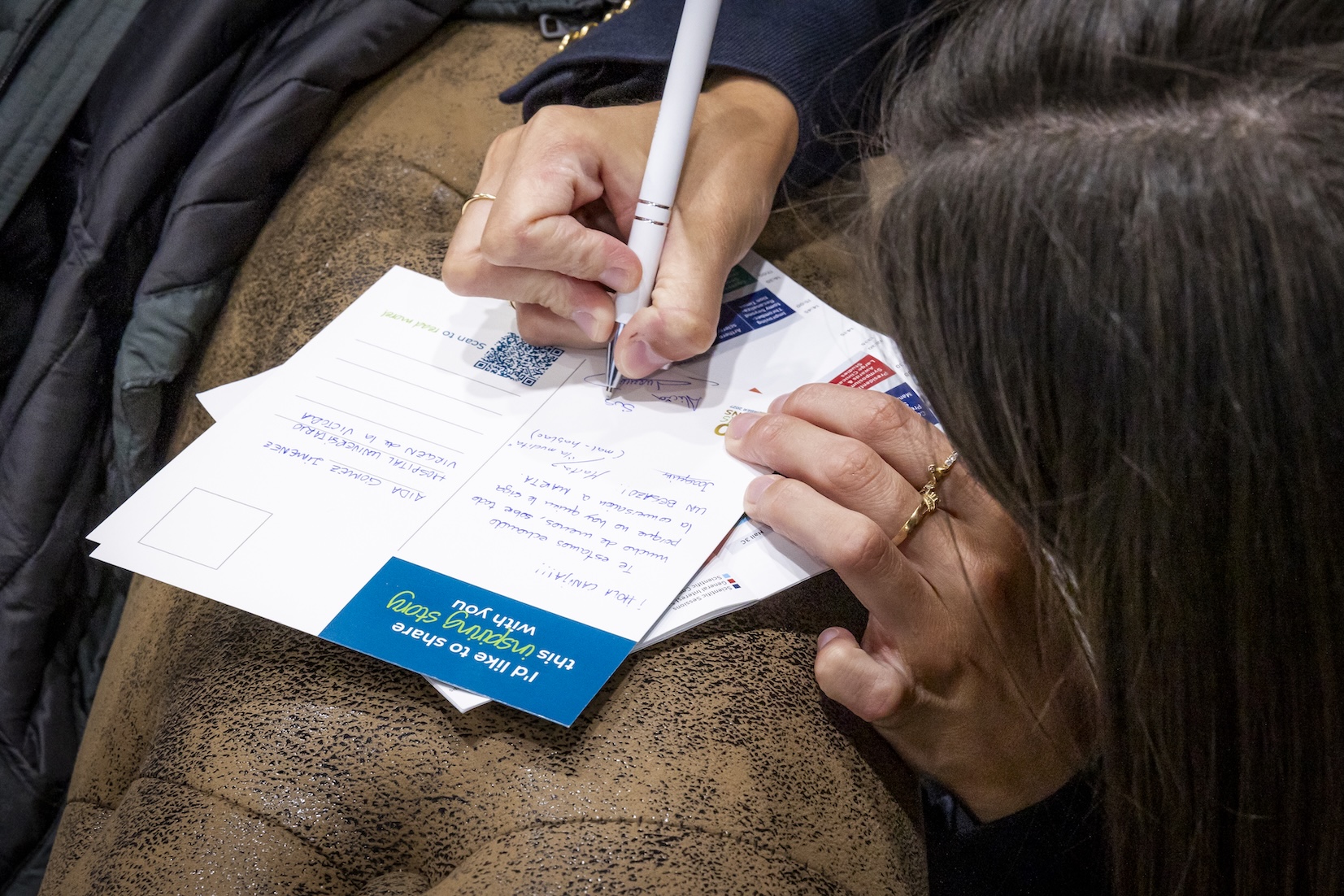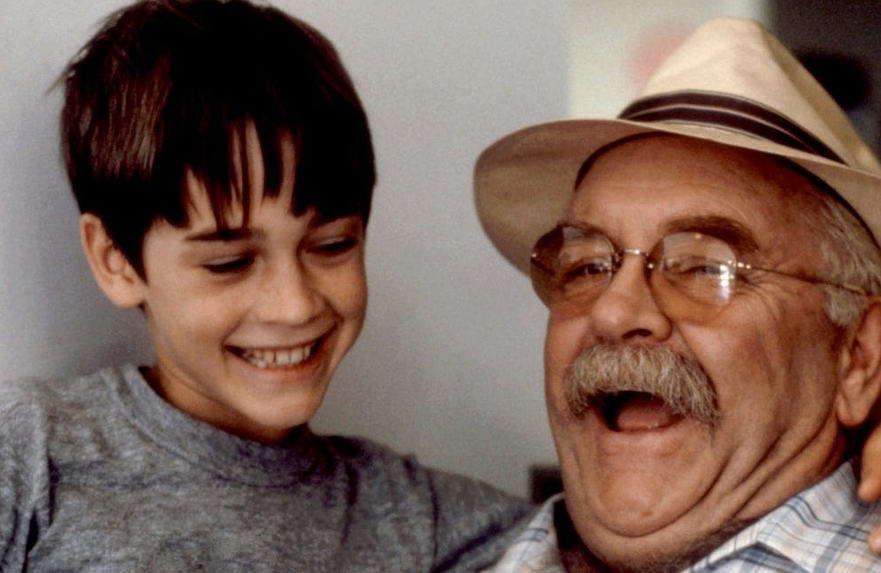
Anna Kiełkowska: la anamnesi inizia nel 2021 quando sono stato contattato dal neurologo responsabile a St. ukasz a Boles La dott.ssa Justyna Straszak-Trzeciak aveva sentito parlare di Angels e voleva incontrarsi. Al momento non avevano alcuna stroke unit, ma lavoravano su di essa e il Dott. Straszak-Trzeciak era sicuro che avrebbero avuto successo. È una persona splendente, con una mente aperta e un cuore per le persone.
Justyna Straszak-Trzeciak: Volevamo un centro ictus a Boles resetawiec in modo che i pazienti colpiti da ictus non dovessero essere indirizzati a strutture a 50 km di distanza e arrivassero troppo tardi per ottenere esiti terapia ottimali. Anche se non eravamo ancora completamente finanziati per il trattamento trombolitico, abbiamo avuto il consenso del nostro direttore sanitario Kamil Barczyk per trattare i pazienti con riperfusione. Ha detto che dovevamo 'trattare, non contare'.
Le nostre prime terapie erano un po' caotiche in termini di organizzazione, ma Anna KieNCowska ci ha dimostrato l'importanza di un'organizzazione perfetta in quei momenti critici in cui stiamo combattendo per la vita del paziente. La simulazione ci ha mostrato quanto sia importante ogni membro del team e che la collaborazione si basa sulla comunicazione di informazioni affidabili che facilitano il processo decisionale.
Attendiamo sempre con impazienza le nostre prossime riunioni Angels, sapendo che guideranno nuovi cambiamenti nel nostro ospedale. Inoltre, Jacek Skóra, che è anche un formatore ASLS certificato, passa le nozioni apprese ai suoi colleghi Servizi d'emergenza e le implementa nella pratica quotidiana.
Jacek Skóra: Il mio primo paziente con ictus è stato molto tempo fa, prima che fosse ampiamente compreso che il tempo è cervello. In passato, i pazienti colpiti da ictus erano generalmente condannati a invalidità permanente o ad altre disfunzioni psicofisiche per il resto della vita. Ma gli ultimi due anni hanno radicalmente modificato l’approccio e le opzioni di trattamento per gli infarti cerebrali nel nostro ospedale. Questi nuovi metodi di trattamento ci spingono a prendere decisioni molto rapide e ad agire rapidamente.
Justyna: Abbiamo iniziato a implementare procedure a procedura accelerata anche prima di avere una stroke unit dedicata. È stato importante sviluppare un modello di lavoro ideale fin dall’inizio. Sappiamo che ci sono ospedali in cui il paziente attende un consulto neurologico in PS, ma in Boles resetawiec è il nostro team di infermieri e un neurologo che attende il paziente, non il contrario.
infermiere Ewa Gadziska: Abbiamo una borsa con tutti i farmaci e le attrezzature necessari e una seconda borsa con attrezzature aggiuntive, che è molto pesanti. L'infermiere riesce a malapena a trasportarla, la sacca si gonfia intorno alle caviglie, ma quando riceviamo un avviso di ictus non c'è un secondo pensiero. Se a volte è più veloce attraversare il cortile, i nostri infermieri non noteranno neanche che non sono adeguatamente vestiti per il tempo. A volte corrono con la pioggia o scarpe leggere fino alle caviglie nella neve.
Justyna: I nostri soccorritori addestrati codificano il neurologo di turno che si riserva il laboratorio di TC. Il paziente viene registrato in PS prima dell'arrivo e portato direttamente alla TC. Se idonei alla riperfusione, la terapia trombolitica viene somministrata in laboratorio TC. Nell’assistenza post-acuta ci concentriamo sulla riabilitazione precoce, stabilendo la causa dell’ictus e la prevenzione secondaria.
Ewa: I pazienti neurologici richiedono più assistenza. A volte sono stanchi della malattia e non sempre collaborano con il personale. Ciò richiede particolari tratti della personalità, in particolare autocontrollo, solidità e, in certa misura, resistenza alla sofferenza umana. Il lavoro può portare a tristezza e lacerazioni, ma anche a gioia. Queste emozioni ci accompagnano ogni giorno, ma ci affrontiamo tutto grazie a un sorriso e un sostegno, specialmente da Justyna.
Justyna: ballare, la mia passione è cresciuta, mi ha insegnato che la professionalità non è mai una coincidenza. La passione genera professionalità e la professionalità produce qualità. Il Direttore Barczyk sottolinea sempre che la qualità è la più importante e si difenderà. Sono colpito dal suo impegno, dalla sua passione e dall’impegno per la perfezione. Sto imparando da lui coerenza e pazienza. Mi motiva sempre ad agire, mi spinge avanti quando vengo da lui con un’altra idea. Dice sempre: Facciamolo! Non perde mai coraggio nel prendere decisioni.
Direttore Kamil Barczyk: Sono pieno di ammirazione per la Dott.ssa Justyna Straszak-Trzeciak, per il suo impegno e la sua determinazione nel perseguire i suoi obiettivi. Il suo duro lavoro e la sua dedizione, il suo desiderio di sviluppo e la ricerca della perfezione hanno permesso di creare un team ambizioso di specialisti che potrebbero diventare uno dei migliori team ictus ovunque.
Justyna: I nostri piani includono sempre un obiettivo specifico; il centro ictus è stato il primo. Inizialmente ha sollevato dei dubbi tra le autorità locali, ma ci sono sogni da realizzare e il nostro obiettivo era quello di creare la struttura migliore in Polonia, gestita secondo le linee guida più recenti. Quando abbiamo aperto il nostro Centro per la prevenzione e il trattamento dell’ictus lo scorso aprile, abbiamo avuto la sensazione che ora possiamo farlo! Con questa passione abbiamo infettato più persone.
Kamil: Sono le persone che cambiano il mondo. Il personale ambizioso, adeguatamente selezionato e appassionato non solo raggiunge l’obiettivo, ma è anche una forza trainante per ampliare gli orizzonti. Un elemento importante per lo sviluppo della medicina è investire non solo nelle immobilizzazioni, ma soprattutto nelle risorse umane.
Justyna: L’inizio è individuale, ma il lavoro è un team, quindi è estremamente importante con cui mi circolo. I miei colleghi mi danno la forza di agire. I medici che hanno ottenuto il nostro successo sono Agata Rojek, Marta Trapszo-Myga, Danuta Rodkiewicz, ukasz Ratajczak, Maciej M Ancoraczka, Anna Kosiak, Anna Siemieska, Vitalii Hrushkevych, Juliia Babkina, Katarzyna Micareelk e Piotr Duda.
L’età media è di 36 anni. Sono un team solido su cui so di poter contare e che sono consapevoli del loro potenziale. Il mio obiettivo è quello di educare i neurologi in aree leggermente distanti dalla specializzazione neurologica, dalla neurosonologia al trattamento della spasticità post-ictus con tossina botulinica, in modo che il nostro team possa essere completamente autosufficiente.
Siamo consapevoli che trasportare il paziente in una struttura a 120 km di distanza per la trombectomia meccanica è la nostra debolezza, quindi il nostro obiettivo successivo è costruire la capacità di trattare i pazienti con trombectomia.
Kamil: Una buona gestione consiste nel definire obiettivi sempre più grandi, quindi nell’intero processo di assunzione e implementazione di decisioni specifiche che consentano l’implementazione. Affinché una buona gestione sia possibile, occorre innanzitutto conoscere le specifiche e l’argomento del settore.
Sono stato/a associato/a al servizio sanitario sin dall’infanzia. Sono nato e cresciuto nel confine della città di Zgorzelec nella regione inferiore Silesiana. Mia madre, in qualità di direttore dell’ospedale di Zgorzelec, spesso mi ha portato al lavoro, dove potevo osservare e imparare fin dalla prima infanzia.
Dopo la laurea [con master in Management and Production Engineering e in Mechatronics] ho iniziato a lavorare in un ospedale di Zgorzelec, occupandosi della raccolta fondi. Ad oggi, attribuisco grande importanza all’ottenimento di fondi esterni che creino opportunità di sviluppo illimitate. L’esperienza acquisita a Zgorzelec, la mia conoscenza del settore e il desiderio di sviluppare e realizzare i miei sogni mi hanno spinto a candidarmi per la posizione di direttore a Boles resetawiec. Il mio obiettivo è creare un servizio sanitario degno del 21° secolo e dimostrare che le soluzioni senza ortodox sono buone ed efficaci, non bisogna averne paura.
Justyna: Per accendere gli altri, devi bruciarti. Ecco perché cerco sempre di essere al massimo coinvolto nel mio lavoro. In qualità di responsabile, guido anche i pazienti, partecipo a ogni fase del processo diagnostico e terapeutico del paziente. Mentre sono in servizio, incontro ulteriori problemi che i miei colleghi in questi turni hanno. La partecipazione attiva alla cura dei paziente è la mia ispirazione per ulteriori cambiamenti che possono migliorare il nostro lavoro.
Sono nata a Lwówek 管l], Nelle scuole superiori, mi sono reso conto che il mio sogno era la medicina e nel 2002 ho iniziato studi medici presso la Medical Academy di Wroc erogare la medicina. Durante lo stage post-laurea è nata l’idea di una specializzazione in neurologia. Perché la neurologia? Poiché si tratta di una branca molto dinamica della medicina, grazie alle terapie moderne, il medico ha un senso di agenzia e questo è ciò che apprezzo di più!
Ho imparato dai medici per i quali era molto importante seguire le ultime linee guida. Mi hanno fatto sapere che non c’erano limitazioni alle possibilità terapeutiche indipendentemente da dove tu abbia lavorato. Mi hanno mostrato come gestire un reparto e collaborare con gli altri e come prendermi cura delle relazioni umane.
Ewa: Volevo essere uninfermiere per tutto il tempo che riesco a ricordare. Sono nata a Bytom e prima di trasferirmi a Boles resetawiec vivevamo in una piccola città della Bassa Silesia senza un centro sanitario.
Da bambino ero spesso malato e l’unico trattamento efficace era l’iniezione intramuscolare, quindi mia madre mi portava in bicicletta al centro sanitario a diversi chilometri di distanza. Il tempo non era sempre favorevole per noi, spesso pioveva. Sapevo quanto fosse costato a mia madre, e pensavo che imparando a fare le iniezioni avrei risolto tutti i problemi di salute della mia famiglia e non avremmo dovuto viaggiare finora.
Jacek: Quello che mi ha attratto in questa professione è, in breve, una grande soddisfazione sul lavoro e l'opportunità di aiutare gli altri e svolgere attività che influiscono sulla loro sicurezza e salute. Sono nato e cresciuto a Boles resetawiec e mi sono laureato presso la scuola di medicina qui come uno dei primi nel Paese a qualificarmi in questo campo. Fin dall’inizio mi sono concentrato sul lavoro solo in caso di emergenza.
Ewa: Gli infermieri e gli assistenti medici che lavorano in neurologia sono persone uniche che hanno un cuore enorme, strati straordinari di empatia e, nonostante un dubbio momentaneo, non si arrendano mai. Beatka, ad esempio, ha le ali sulle spalle e un cuore aperto. Più di una tempesta ha sconvolto la sua vita, ma è ancora in attesa di arcobaleni. Il Natalka è un rifugio di calma all’esterno e all’interno, due elementi, acqua e fuoco. Potete sempre contare su di lei. La ma rimangagosia è calda, gentile, calma, qualunque cosa accada; l’ania lenisce tutte le tensioni con un sorriso.
Kornelka, il sole sorridente del reparto, ha la capacità di godersi le cose più piccole. La paziente si sente calda con lei. Agnieszka raramente emana emozioni all’esterno, ma ha sempre le mani aperte per sollevare le alette rotte. Angellika non risparmia parole che portano conforto, non chiude mai il cuore a un altro essere umano...
Ovviamente, il paziente non va in ospedale in tempo e la sua vita è profondamente influenzata dall’ictus. Quindi inizia la lotta di questo paziente, della sua famiglia e di tutto il team. Lunghe ore e giorni passano e il paziente non sempre guarisce. Ma anche in questi momenti la famiglia ci ringrazia perché sa che fino all'ultimo respiro il paziente aveva curato come se si alzasse domani e tornasse a casa.
Kamil: Il personale addetto alla qualità e alla creazione di condizioni per il loro sviluppo è l'indicatore più importante del potenziale dell'unità. Cerco di utilizzare tecniche innovative di gestione ospedaliera, introducendo una serie di nuove soluzioni che migliorano significativamente il funzionamento della struttura. Ma sono le persone che ci permettono di vedere il futuro dell'sanità con ottimismo.
Justyna: La segnalazione dei nostri dati in RES-Q è stata un'altra importante misura di qualità. Noi polacco di solito non ci piace far notare i nostri errori, abbiamo paura delle critiche. Ma la segnalazione di dati specifici ci mostra i nostri potenziali punti deboli ed è una forza trainante per il cambiamento.
Qual è il nostro punto di forza? Il nostro pensiero e i nostri piani a lungo termine! Tutto il nuovo è un’opportunità e una sfida che vogliamo affrontare!
Siamo anche colpiti dall’atteggiamento dei paramedici che partecipano alla prima fase di questo processo diagnostico e terapeutico con grande impegno. Il loro lavoro è eccellente.
Jacek: I cambiamenti nella la cura dell'ictus presso il nostro ospedale e le prove che possiamo prevenire la invalidità in molte persone hanno creato una percezione molto positiva nel nostro gruppo di paramedici. Il nostro lavoro è stato riconosciuto anche con un Angels EMS Awards. Ricordo di aver portato un paziente con afasia e confusione in ospedale e quando ho incontrato il medico nel corridoio un'ora dopo, mi ha detto che dopo il trattamento trombolitico questo paziente si era ripreso completamente. Sentivo allora il valore e l’importanza dei cambiamenti, ho sentito che tutto era sensato.
Ewa: Non è sempre possibile separare la mia vita personale dal lavoro. Mi piacerebbe solo giornate meravigliose e felici, solo pazienti che guariscono rapidamente, ma ogni vita è diversa e ogni lotta è un passo avanti. Ma se ci chiedessimo perché stiamo facendo tutto questo, potremmo anche chiederci: Quale ala deve volare un uccello? Destra o sinistra?
AGGIORNA St. MDukasz a Boles resetawiec ha vinto il suo ottavo riconoscimenti al diamante nel secondo trimestre del 2024.




